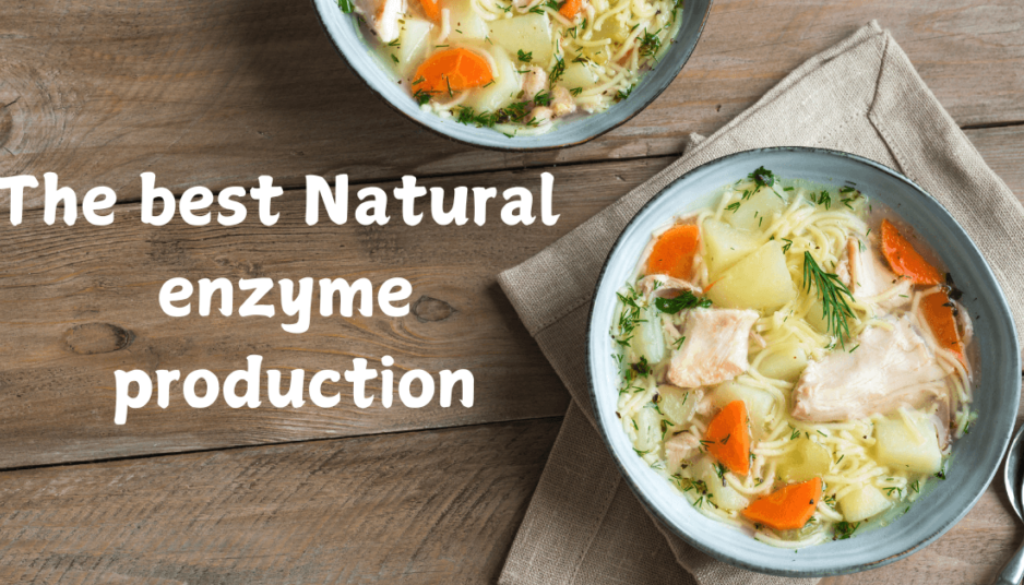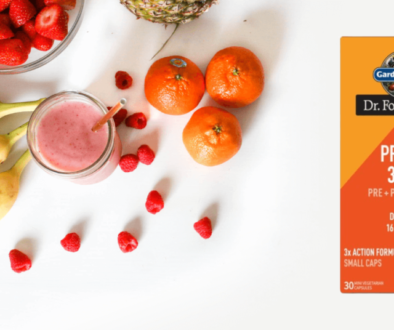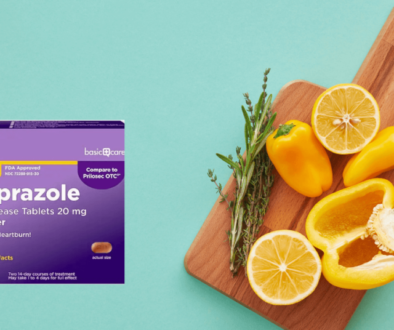The best Natural enzyme production, digestive health, enzyme-rich foods, improve digestion, digestive enzyme supplements All you need to know
wwwtheshe.com Probiotic's for women 0
Unlocking the Power of Your Gut: Natural Ways to Boost Enzyme Production
Your digestive system is an incredible machine, working tirelessly to break down food and extract the nutrients your body needs. At the heart of this process are enzymes—tiny but powerful proteins that play a crucial role in digestion. But what happens when your body isn’t producing enough enzymes? You might feel bloated, sluggish, or struggle with indigestion. Fortunately, there are natural ways to boost your enzyme production, helping you reclaim your digestive health and feel your best.
Understanding Digestive Enzymes: The Unsung Heroes of Digestion
Before we dive into how to enhance enzyme production, let’s take a moment to understand what these little powerhouses do. Digestive enzymes are like the unsung heroes of your digestive system. They break down the food you eat into smaller molecules—proteins into amino acids, carbohydrates into sugars, and fats into fatty acids—so your body can absorb and use them.
When enzyme production is low, your body struggles to digest food properly. This can lead to a host of issues, from nutrient deficiencies to uncomfortable symptoms like gas, bloating, and indigestion. The good news? You can naturally support your enzyme production and improve your digestion by making some simple changes to your diet and lifestyle.
1- Savor Enzyme-Rich Foods
Imagine eating a juicy slice of pineapple or a spoonful of creamy avocado. Not only are these foods delicious, but they’re also loaded with natural enzymes that can give your digestion a much-needed boost.
- Pineapple: This tropical fruit contains bromelain, an enzyme that helps break down proteins. It’s perfect for adding a refreshing twist to your meals while aiding digestion.
- Papaya: Packed with papain, another protein-digesting enzyme, papaya is not only a sweet treat but also a digestive aid. Try it in smoothies or salads for a tropical flair.
- Avocados: Known for their healthy fats, avocados are rich in lipase, an enzyme that helps digest fats. Add them to your toast, salads, or simply enjoy them on their own.
- Kiwi: This small but mighty fruit contains actinidain, which supports protein digestion. It’s a tangy addition to fruit salads or as a snack on its own.
These foods are not just tasty; they’re nature’s way of helping your body do its job more efficiently.
2- Hydration: The Foundation of Enzyme Production
Water is often overlooked in its importance, but it’s the foundation of all bodily functions, including enzyme production. Dehydration can slow down enzyme activity, making digestion more difficult.
Start your day with a glass of warm lemon water—it’s a simple habit that not only hydrates but also stimulates your digestive system. Throughout the day, keep a water bottle handy to ensure you’re consistently hydrated. Your enzymes will thank you!
3- Fermented Foods: A Probiotic Powerhouse
Fermented foods are like a party for your gut. They’re rich in probiotics, which are beneficial bacteria that support a healthy gut microbiome. A balanced microbiome is crucial for enzyme production and overall digestive health.
- Yogurt: Choose plain, unsweetened yogurt with live cultures. It’s a versatile food that can be enjoyed on its own, in smoothies, or as a base for dressings.
- Kefir: This tangy, fermented milk drink is loaded with probiotics and enzymes. Drink it straight or add it to smoothies.
- Sauerkraut and Kimchi: These fermented vegetables are not only flavorful but also packed with probiotics. They’re great as a side dish or added to sandwiches for an extra crunch.
Incorporating these foods into your diet can make a significant difference in your digestive health.
4- Mindful Eating: Chew Your Food Thoroughly
We live in a fast-paced world, and often, our eating habits reflect that. But digestion begins in the mouth, where enzymes like amylase start breaking down carbohydrates. When you chew your food thoroughly, you’re giving your body a head start in the digestive process.
Take the time to savor each bite. Not only does this practice enhance enzyme production, but it also allows you to enjoy your food more fully. Eating mindfully can transform your meals into a moment of relaxation and appreciation.
5- Portion Control: Avoid Overeating
Overeating can overwhelm your digestive system, making it harder for your body to produce and utilize enzymes efficiently. Eating smaller, more frequent meals can help maintain a steady supply of enzymes and prevent digestive discomfort.
Listen to your body’s hunger and fullness cues. By eating until you’re satisfied, rather than stuffed, you’ll give your digestive system the support it needs to function optimally.
6- Stress Management: A Calm Mind, A Calm Gut
The connection between the mind and gut is powerful. When you’re stressed, your body’s enzyme production can take a hit. Incorporating stress-reducing practices into your daily routine can have a profound impact on your digestive health.
- Meditation: Just a few minutes of meditation each day can help calm your mind and support better digestion.
- Deep Breathing: Practice deep breathing exercises to reduce stress and promote relaxation. It’s a simple technique you can use anytime, anywhere.
- Yoga: Yoga combines physical movement with mindfulness, making it an excellent way to reduce stress and improve digestion.
By managing stress, you’re not only supporting your mental health but also ensuring your digestive system functions smoothly.
7- Supplement Wisely: When Nature Needs a Boost
Sometimes, despite our best efforts, our bodies need a little extra help. Digestive enzyme supplements can be a valuable tool in your wellness arsenal, especially if you’re dealing with persistent digestive issues.
Look for a high-quality supplement that contains a blend of enzymes like protease, amylase, and lipase. These supplements can support the digestion of proteins, carbohydrates, and fats, helping you get the most out of your meals.
8- Whole Foods Over Processed Foods: Nourish Your Body
Processed foods are often stripped of their natural enzymes and nutrients, leaving your digestive system with extra work to do. By focusing on whole, unprocessed foods, you can support your body’s natural enzyme production and overall health.
Think fresh fruits, vegetables, whole grains, and lean proteins. These foods are rich in the nutrients your body needs to produce enzymes and maintain optimal health.
9- Ginger: A Spicy Solution for Better Digestion
Ginger is more than just a spice; it’s a powerful digestive aid. Known for its ability to stimulate enzyme production, ginger can help soothe an upset stomach and improve digestion.
Add fresh ginger to your meals, brew it as a tea, or enjoy it in smoothies. Its warm, spicy flavor is a delightful way to support your digestive health.
10- Prioritize Sleep: Your Body’s Time to Heal and Rebuild
Sleep is when your body does most of its repair work, including producing enzymes. Poor sleep can lead to reduced enzyme production and digestive issues, so it’s crucial to prioritize restful sleep.
Create a bedtime routine that promotes relaxation. Limit screen time before bed, keep your sleeping environment cool and dark, and aim for 7-9 hours of quality sleep each night. Your gut—and your entire body—will benefit from a good night’s rest.
Conclusion: Nurturing Your Digestive Health, Naturally
Boosting enzyme production naturally is about more than just improving digestion; it’s about nurturing your overall well-being. By making mindful choices in your diet and lifestyle, you can support your body’s natural processes and enjoy better health.
Remember, your digestive system is your body’s engine—fuel it well, treat it kindly, and it will serve you faithfully. Whether it’s savoring enzyme-rich foods, managing stress, or simply chewing your food thoroughly, these small but powerful changes can lead to a big difference in how you feel each day.
References:
- National Center for Biotechnology Information. (2012). Bromelain: biochemistry, pharmacology, and medical use.
- University of Illinois. (2016). Papain – Protein Digesting Enzyme from Papaya.
- Harvard T.H. Chan School of Public Health. (n.d.). Avocados: Nutritional Profile.
- National Center for Biotechnology Information. (2018). Actinidin, a Kiwifruit Enzyme, Enhances Gastric Protein Digestion
- Mayo Clinic. (2020). Dehydration: Can it cause digestive problems?
- Johns Hopkins Medicine. (2021). Probiotics and Digestive Health.
Related articles on probiotics, digestive enzymes, and gut health tips.
Unlock the Full Potential of Digestive Enzymes: All you need to know for Optimal Health



